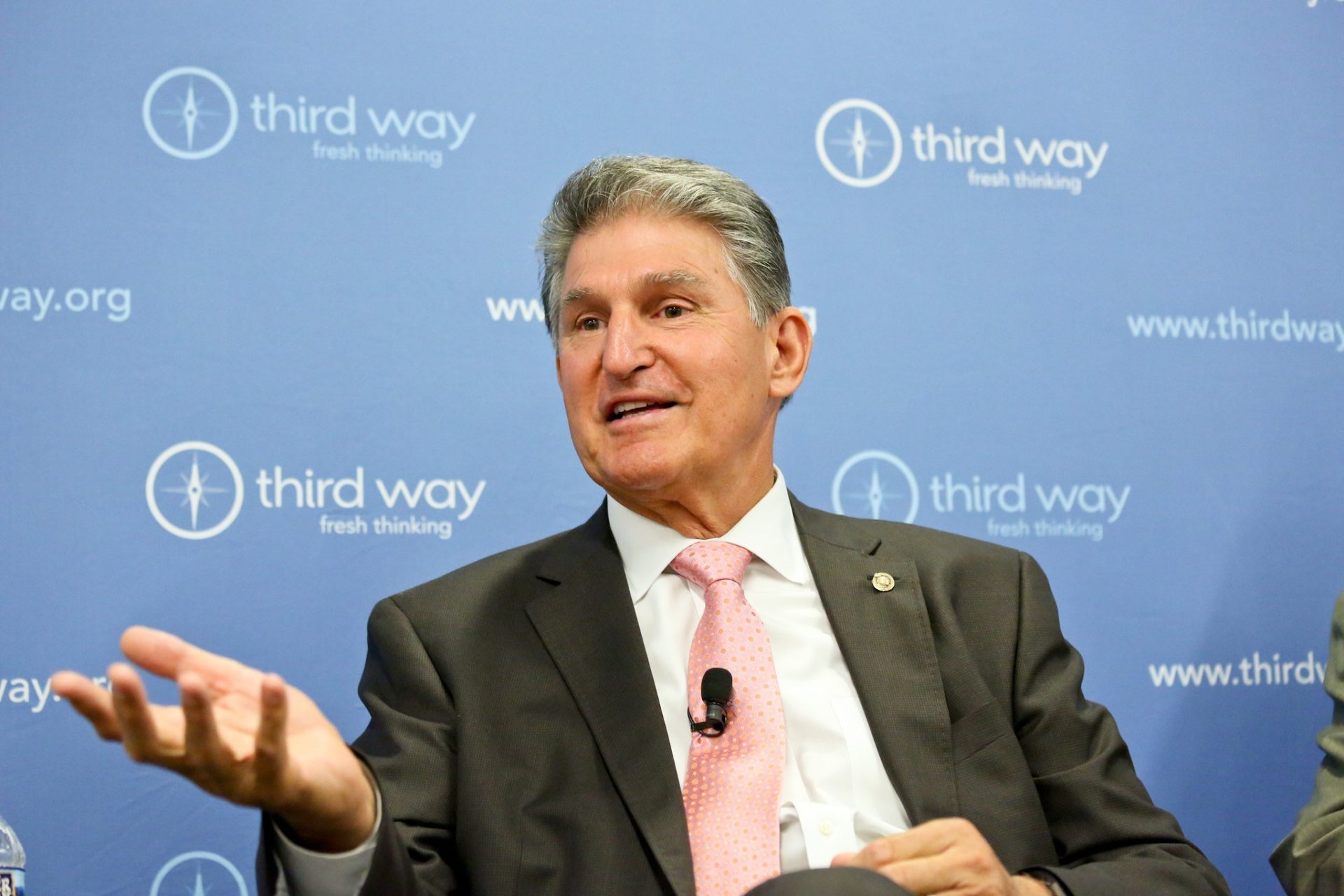
If the Democrats have a strategy, it has not been easy to discern.
It has been a year since the run-off elections in Georgia left the country with a 50-50 split in the Senate. Back then, as the 2020 election approached, Democrats had a significant chance of not flipping the Senate from the then-53 seat GOP majority, but winning their own 55-seat majority. Daydreams of reshaping the Supreme Court to redress the perfidy of the Merrick Garland nomination led the agenda – followed closely by Medicare expansion, immigration reform, free college tuition, a myriad climate change initiatives, and much more.
It did not come to be, of course. Despite running against a president viewed by Gallup as the most polarizing on record, Democrats barely limped away with control in the House. It took two run-off victories in Georgia to win a 50-50 split in the Senate, and as polling guru Nate Silver pointed out, a 50-50 split is a world apart from a 55-45 majority. While FiveThirtyEight gave Democrats a 75% chance of flipping the Senate that night, Silver observed that something less than that would leave moderates like Joe Manchin in control of the agenda.
Insanity, Albert Einstein once stated, is doing the same thing over and over and expecting a different result. So, under that definition, the past year of Democratic legislating fit that definition. Despite the obvious rifts within their party, the Democrats surged ahead with debating Build Back Better and voting right legislation that had no chance of passage. And yet, the White House and Democrats in the Senate pushed ahead anyway.
The why seems unclear. Perhaps party leaders felt a duty of loyalty to base voters to bring the matter to a vote – to be caught trying. Perhaps some believed there might be a moral victory, or perhaps some future political advantage to be gained in forcing Republicans to vote no. Perhaps. But after a year of watching one legislative initiative after another fall by the wayside, the vote seemed less of a victory of principles and more of a strategic miscalculation.
Now their attention turns to filibuster. Democrats of all stripes are steaming with at the unwillingness of two of their colleagues to agree to change the Senate filibuster rules and allow voting rights legislation to become law. Yet as painful as it is to admit, the intransigence of Joe Manchin and Kyrsten Sinema on the filibuster and other Democrat plans is the symptom of a larger problem.
That problem is, as Nate Silver observed, the limitations of what is possible in a 50-50 Senate. From the day the Georgia results were announced, one thing was clear: Joe Manchin was the de facto majority leader of the Senate. Chuck Schumer may have that label on the door to his office in the Hart Senate Office Building, but his is a title in name only. Unlike Mitch McConnell, who holds an iron fist over his now-minority caucus, Schumer can only pass legislation with the consent of Joe Manchin.
It is unclear how this basic fact of vote counting seems to have eluded so many Democrats for so long. Early on, progressives seemed to cling to an illusion that the world was other than it is. During the run-up to the 2020 election, Alexandra Ocasio-Cortez made the accurate observation that in most other countries, she and Joe Biden would be in different political parties. In many parliamentary democracies, a small energized political faction might indeed be able to win significant commitments and concessions as the price of joining a governing coalition. But ours is not a parliamentary system, and despite their considerable efforts to impose their will on the Democratic Party, progressive Democrats have proven time and time again over the last year that they do not have the leverage that Joe Manchin has. There is no reason to yell and scream about it; that is just the way it is.
The irony of progressive rage at Joe Biden’s failure to deliver on their agenda is that he was not given a mandate for progressive transformation by the electorate. If transformation of the nation was on the minds of voters in 2020, there were many candidates to choose from during the Democratic primaries. Indeed, Fox News exit polls from the 2020 November election suggest that the country is much more centrist than one might assume from the tenor of our unceasing partisan warfare, with 12% of voters describing themselves as very liberal and 16% as very conservative, while the remaining 72% lie somewhere in between.
Among Democratic primary voters – who by a substantial majority described themselves as moderate or conservative – and general election voters of all political leanings exhausted by four years of Donald Trump, voting for Joe Biden was as much as anything a vote for a few years of peace and quiet. As one Democratic strategist observed at the time, people were tired of having Hulk Hogan in the White House and were ready for a few years of Mister Rogers.
It was not to be. After seeing their hopes for a strong Senate majority dashed by a cautious electorate, Democrats might have taken the long view and worked to rebuild the trust of the electorate, even as the GOP was being drawn inexorably into the grip of conspiracy theorists and fringe agitators. But instead of seizing the opportunity to build a broad coalition of those praying to return the country to normalcy, Congressional Democrats have spent a year fighting for an agenda of “transformation” with a desperation that reeks of a belief that this 50-50 Senate is the best and only opportunity they are ever going to have. It did not have to be that way.
It was just a few years ago, after all, that Democrats held a 59-41 seat majority in the Senate, a majority that was made possible by an explicit strategy of seeking candidates that were suited to the profile of the electorate in each state and congressional district. Manchin is immune to pressure from Democratic activists – indeed bullying by the left only inures to his benefit back home – for the simple reason that he knows his constituents. He out-performed Joe Biden in West Virginia by nearly 20 points, beating his last Republican opponent 50% to 46%, while Donald Trump trounced Joe Biden 69% to 30%.
“The bottom line,” Massachusetts Senator Edward Markey commented last week after the defeat of the voting rights legislation, “is that…the only thing that can pass is a package that has the votes.” While Markey’s conclusion would have been more useful had he made it a year ago, after the Georgia election, rather than last week, it suggests that after a year of banging their heads against the wall, Democrats may be ready to step back and consider what is possible in a 50-50 Senate.
Perhaps, but perhaps not. The response among many progressives to a year of failed efforts has not been to look in the mirror and consider whether they might be out of step with an electorate that is more centrist than they might imagine. Instead, they have suggested that if there is learning to be done, the onus is not on them. Bernie Sanders set the tone, as he pronounced that this is a moment to double down on the progressive agenda, rather than pull back, showing more enthusiasm for talking about mounting primary challenges against Joe Manchin and Kyrsten Sinema than supporting any pared back legislation that Joe Biden may offer.
The 2022 midterm elections are just nine months away, and Democrats are already confronting significant headwinds. Historical data suggests that the party that holds the White House loses an average of 26 seats in the House and enough in the Senate to put Mitch McConnell back in charge. And this time, Democrats won’t have Donald Trump to kick around – or at least he will not be on the ballot. Against that backdrop, Democrats cannot afford continued infighting if they want to hold on to majorities in Congress.
And yet it appears to be unavoidable. Progressives and moderates have been at each other’s throats since the results began to trickle in on election night 2020, as each side blamed the other for the party’s disappointing performance. Perhaps if Joe Manchin accepted Mitch McConnell’s urging for him to switch parties – putting all of their ambitions at risk, to say nothing of a Supreme Court seat – Democrats would wake up and

David Paul
David is President of Fiscal Strategies Group, and was previously Managing Director of Public Financial Management, a public and project finance subsidiary of Hongkong and Shanghai Bank. He also served as the Vice Provost of Drexel University, and founded and served as CEO of Mathforum.com, a mathematics and math education Internet company and virtual community that is now part of the National Council of Teachers of Mathematics.






